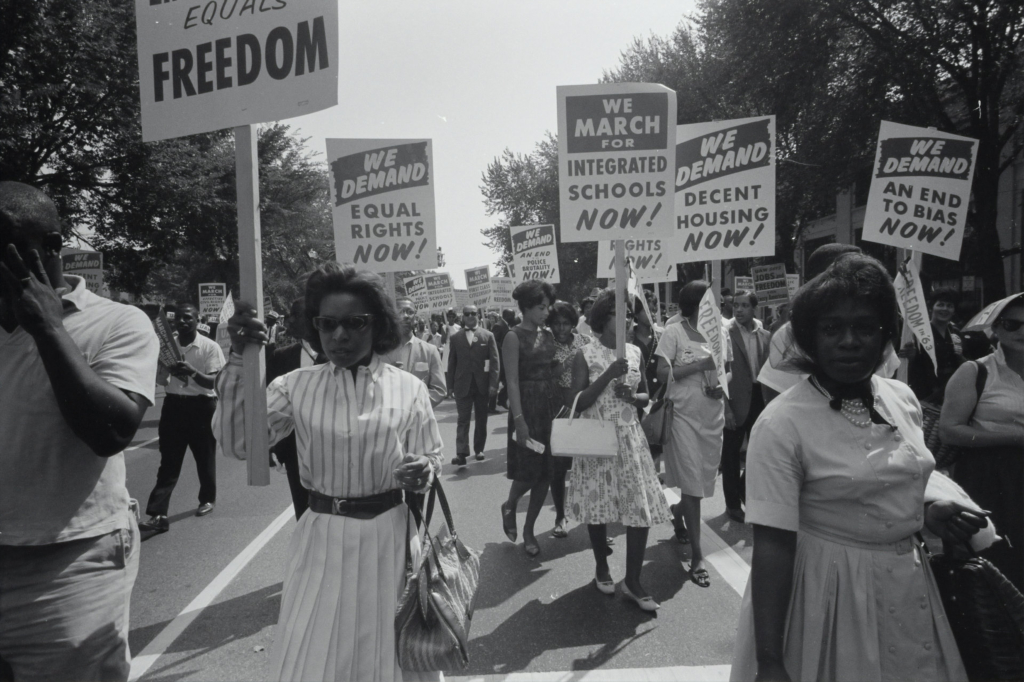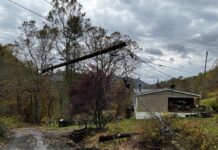
Any prepper, in fact any person who wishes to be prepared for whatever the future may bring, has to ask themselves if the coronavirus and the turmoil it is creating in this country will result in civil unrest.
It would be foolish to ignore the possibility that the frustration of staying home for weeks or months, pent-up anger at the number of deaths, worry related to job loss, anxiety about being forced to work without proper PPE, fear of catching the coronavirus, or concern about the nation’s response to the virus and the economic damage it us causing, may boil over and into the streets.
What will happen, when it will happen, and how to prepare for it is part of the assessment that every prepper has to make for themselves. You can be sure that every chief of police, mayor, National Guard commander and emergency responder is weighing those same questions and planning their own response.
Protests are as American as Apple Pie
The United States has a rich history of protests, and an unfortunate history of riots, looting and other forms of civil unrest. Also unfortunate is the sometimes brutal response of civil authorities. You probably remember some protests and riots from the media coverage, but take a look at this long list to see just how many there have been over the years. And these are just the major ones.
In fact, if you go back to the Boston Tea Party, you could say that the United States was founded on the premise that protest, a forerunner to revolution, is a necessary and sometimes appropriate response to government malfeasance. Through the years, great social movements, from suffrage to civil rights, have succeeded due in some part to protests and civil disobedience. Apparently, nothing changes minds in congress like a few million people protesting in the streets.

Protests Can Lead to Riots
Protests may start calmly, with all the proper permits and peaceable intentions, but they don’t always stay that way. Sometimes things get out of hand, especially when tensions run high. Police may over react. A mob mentality may take over, suppressing calmer heads. And sometimes, a fringe group uses a protest as cover for intentional violence. Before you know it, police cars are burning, windows are smashed, heads are broken, and hands are cuffed.
Riots, which are known for wanton violence and destruction of property, can also generate spontaneously, usually in reaction to a perceived injustice, like the Rodney King Riots. If there is an undercurrent of anger, a single action can act like a match to a powder keg, causing the whole situation to blow up. The deeper the anger, the longer the riot and the more damage it will do.
Looting seems to happen after a protest has gotten out of hand or a riot has started. It is often a reaction to a lack of law enforcement presence or push back, as people in the crowd take advantage of the situation to steal a few things. Others see them succeed in looting and before long it’s a free-for-all. People who did not participate in the original protest will run to join the looting, hoping to get little something for themselves. Common targets for looting in the past have been drug stores, grocery stores, electronics, guns, liquor and even beauty stores.
Riots due to anger are not uncommon, but riots due to a lack of food are rare in the U.S., if not in other parts of the world. Coronavirus and its side effects could change all that. We could see looting specifically because people are hungry, because grocery stores have limited food, because prices rise at an unreasonable level, or because people do not have money to afford food.
It’s Difficult to Protest During a Pandemic
Right now, three things are preventing riots and protests: First and foremost is fear of the virus. The very act of protesting, of gathering by the thousands and marching through streets and public squares, could sicken or kill you. Second, there is still food is in the stores and no one is starving. Third, there has been the promise of money in our pockets, both via unemployment programs and government handouts. If the social compact collapses, if people run out of food or run out of money to provide food and housing, then you could see large-scale protests, looting, and widespread social unrest.
Economics is the key. If people have hope, they will hang on and tough it out. If they lose hope, see their family members die or faced with starvation, the will have only despair, and with nothing left to lose, rioting may appear to be a viable option.
When you see hope turning to despair, prepare for civil unrest and expect to see the thin veneer of civilization to be peeled away, revealing the ugliness that lurks in the souls of some.
How to Prepare for Civil Unrest
The best way for the individual prepper to prepare for civil unrest and rioting it is to simply avoid it and areas where it is likely to break out. You can do that by monitor the local news, social media feeds, talking to people in the area, and trying to get a feel for the prevailing mood. How are people feeling? Is there an undercurrent of anger or desperation?
Protests are often planned and publicized in advance. If there is a protest planned for the governor’s mansion, stay away from the governor’s mansion. If it is at City Hall, give city hall a wide berth. In short, don’t be where the protests are. Stay off the planned routes and out of the area.
Riots and looting are harder to predict because while protests may be openly planned, riots are not. If you see an angry crowd gathering, head the other direction. If you are driving, turn around. If you are walking, walk against or at right angles to the flow of the crowd. If you have no intention of rioting or looting ,then say whatever you have to say and do whatever you have to do to avoid getting caught up in the crowd as it pushes towards its target.
For example, if you’re on the 14th floor of an office building and a riot breaks out in the streets below, your best bet may be to stay in the building overnight. If you are in a hospital and protestors are clamoring outside, then look for a way out the back that avoids the crowd, even if you need to leave your car there. You don’t want to be the car that drives up to a crowd and gets their windows smashed or ends up being tipped over and makes the evening news.
Another alternative is to bug out. If you live in an area and riots are heading your away, grab your go bags, pack the car, and head in the opposite direction. (Riots are occasionally accompanied by arson, and you don’t want to be home for that.) Find a friend or family far away and stay with them. Camp in a park. Rent a hotel. Just get out of the path of a vengeful, angry crowd.
You also need to think about how you will react if a government official, a friend, or a random stranger asks you for your N95 face masks, the stored food you bought a few years ago, or your extra toilet paper.
The Preppers’ Challenge
Daisy Luther over at the Organic Prepper, a blog I have read for years, published a recent article entitled, “It’s only a Matter of Time until COVID-19 Lockdowns Lead to Civil Unrest.” It’s a good read, and if you haven’t done so yet, I encourage you to read it.
In it, she addresses something that should be of particular concern to preppers:
Many people in the preparedness community have noticed with discomfort the increasing number of people saying, “I’ll just come to your house” or “It’s not fair that selfish preppers have all this stuff and they’re refusing to share.” Many of us have been asked by friends, neighbors, and family members if we can spare some toilet paper or hand sanitizer.
The people who suspect you may have food will show up at your door one of these days when they run out of food. First, they’ll come asking for it. Then they’ll come demanding it.
The unwritten question is: What are you prepared to do about it? People like James Wesley Rawles over at the Survivalblog.com says “Give until it hurts,” but encourages you to do so through a church or other organization so that you are not targeted. Others will tell you to shoot the first looter and post his head on a stake as a warning to others. I think many of us will fall somewhere in between.
My response will depend on how the question comes up and whose asking. Someone asking nicely is going to get a more positive response than someone demanding and threatening. My response will also depend on whether or not I know them and what our relationship has been. I can tell you that gifts of food and supplies are far more likely to be made to needy friends and neighbors than some stranger passing through.
Thankfully, we live well off the beaten path at the end of a no-outlet road that most people don’t even know exists. I think there is only a very tiny chance of large-scale civil unrest spilling miles out of the city and reaching us. There’s probably a larger chance of a small caravan of armed people pulling up and making a “request” for our supplies or our neighbor’s chickens. That’s when you and your neighbors need to remember what Benjamin Franklin said: “We must all hang together, or assuredly we shall all hang separately.”
Unfortunately, it only takes one guy who delivered a package to your house and took note of the return address, to spread the word or one person who told somebody something about you to create an angry, demanding person at the door. That’s the situation we would prefer to avoid. That’s the situation where you have to ask yourself: Am I equipped and prepared to respond to threats and aggression in a manner that will win the day and keep me and mine safe?
How to Avoid Prepper Envy
Let’s imagine that you have a huge basement under your house crammed with everything a prepper could want. Bad times come and people who know you have all these goods covet them. That’s prepper envy, a term I just coined.
So how do you avoid prepper envy and protect your stuff?
First, don’t tell anyone about it. It’s just like the first rule of Fight Club: You do not talk about Fight Club. If someone asks if you’re a prepper, be vague and dismissive. Don’t confirm you’re a prepper. Keep your mouth shut, teach your spouse and kids not to talk about it, and maintain good operational security.
Second, don’t store prepping-related things in visible places where repairman, delivery people, nosey neighbors, friends from church, people from work, parents of kids yours go to school with, or other visitors will see them and possibly take note. A locked room or closet is ideal. A closed cabinet in the garage is fine. Under beds or in unlabeled corrugated boxes is better than nothing. For similar reasons, I also disagree with having your gun safe in you riving room, no matter how pretty its paint job. There’s no reason to let everyone who peeks their head in your front door to know that you have a gun collection valuable enough to require a safe.
Third, think physical security. Do your doors have decent locks? Do you need a fence? Do you have a dog? If you have the land, a fence with a gate gives peace of mind. If you hear someone crunching the gravel on your driveway or someone rings the doorbell, you know they’ve come through a closed gate to do so. In my mind, that makes them a trespasser and you can treat them with a bit more suspicion than you might if someone knocked on your door in the suburbs.
Fourth, consider going armed. Get some training and plenty of practice. Plan out how you would “repel boarders,” so to speak. But most importantly, determine how far you are willing to go and under what circumstances before you find yourself under those circumstances and make a hasty decision you may come to regret.
Fifth, consider caching some of your goods off site. This could be at a bug out location, in a storage unit, or even buried in the back 40.
Sixth, find like-minded people and pool your resources and labor. Offer them a place to bug out to if they in turn will offer you manpower and physical labor, and vice versa.
Should the balloon goes up and the rule of law is no longer being enforced, then you can do things like look for places where a carefully cut down tree or a badly parked vehicle might slow down an invader. You can pool resources with your neighbors, form a mutual response network, and plan how to discourage people from turning down your road or even into your development.
But out of all of these suggestions, the most important is to keep your mouth shut. That will stop many of these other scenarios from every happening.
Be Prepared
No one really knows if the coronavirus or the government’s response to it will result in civil unrest, but that shouldn’t stop you from preparing for the worst. We’re preppers, man, that’s what we do!
Read past articles on how to prepare and check out the Pickled Prepper’s Diary.







